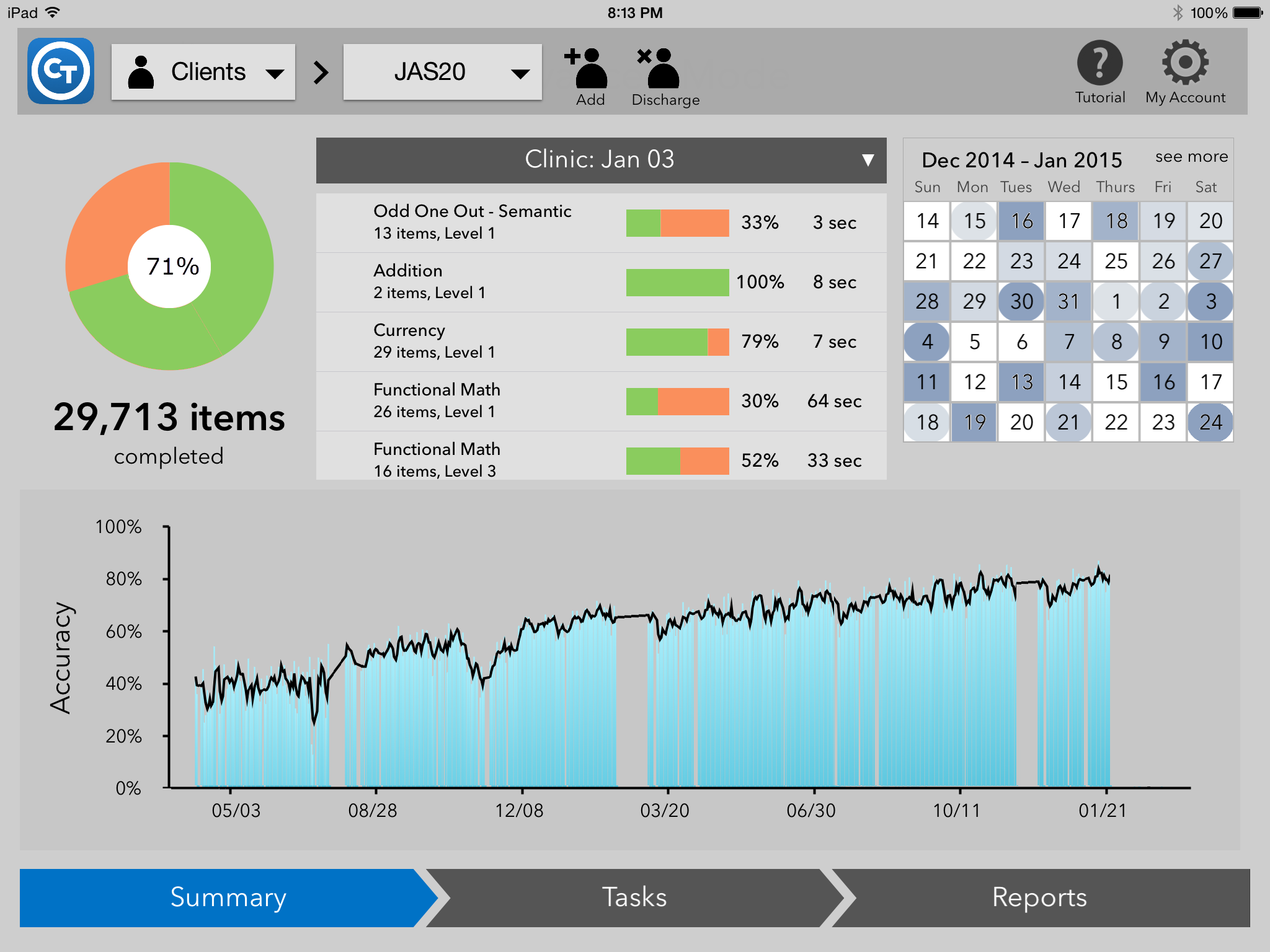
Stroke survivors engaged in telehealth-based stroke therapy programs received 5 times more therapy than patients receiving in-clinic therapy alone, according to an internal study conducted by Constant Therapy, which provides a science-based, customized brain rehabilitation software program. After analyzing more than 20 million therapy exercises completed by users on its mobile platform, the company found that stroke patients experience greater improvement in both cognitive and speech accuracy and processing speed during their recovery using telehealth-based programs.
Because therapy is available for use on an iPad, Android or Kindle tablet device, rehabilitation exercises that are assigned and practiced during an in-clinic session can be continued at home. As the person continues to practice, a speech and language pathologist — or the technology itself — can advance an individual through a series of more challenging exercises to help improve memory, attention and speaking.
Other key findings from Constant Therapy’s study, which analyzed more than 100 million data points, include:
– Accuracy in language and cognitive exercises improved 15% in individuals with severe impairments by completing 100 exercises, and 40% for those completing 500 or more of the same exercises.
– Processing speed in language and cognitive exercises improved more than 20% with 100 items completed, and over 80% after completing more than 500 exercises
That same data, now available at scale, enables speech-language pathologists and other healthcare clinicians to understand and predict what brain therapy exercises will be most effective for individual stroke patients. The company’s NeuroPerformance EngineTM, an advanced analytics engine, analyzes patient performance and automatically personalizes therapy based on their specific performance and needs.
“Combining big data and mobile technology allows us to collect more and better data throughout the rehabilitation process than was ever possible before,” said Keith Cooper, CEO of Constant Therapy. “The more data we collect, the better our algorithms become and the more we can recommend and deliver precision medicine. It’s really the dream of personalized healthcare.”
